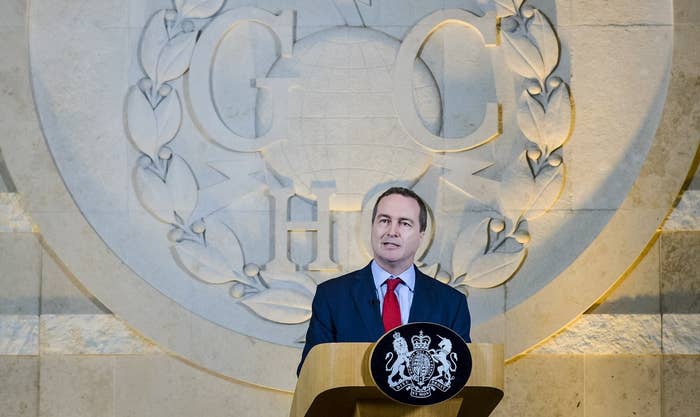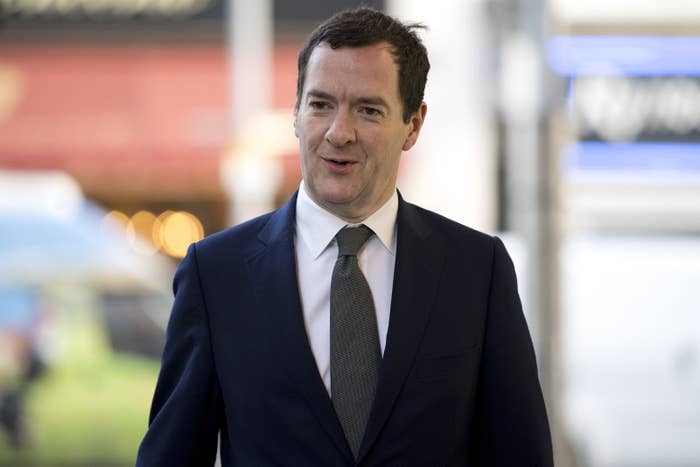
A former head of the UK spy agency GCHQ has been criticised by the panel that advises on new jobs for former ministers and senior civil servants for taking a new role without seeking its permission – but was then immediately approved for a second role.
Robert Hannigan, who earlier this year stepped down as the director of GCHQ, has launched a consultancy company and accepted a commission as head of the European advisory board for a new US cybersecurity firm, BlueteamGlobal.
However, he did not seek approval from the Advisory Commission for Business Appointments (Acoba) before this role was announced. The move contradicts the committee's rules for civil servants in the first two years after they leave public service.
"The Committee would like to register its concern that Mr Hannigan’s appointment with BlueteamGlobal was announced before the Committee had the opportunity to provide its advice," it said in a public letter to Hannigan.
"The Government’s Business Appointment Rules for former Crown servants specify that retrospective applications will not normally be accepted. To fulfil the remit given to it by Government, the Committee needs to be able to consider an application fully and freely before offering its advice.
"It is impossible to do this in a way that will command public confidence if an
appointment has already been announced and/or taken up. The Committee is therefore unwilling to give retrospective advice for this appointment."
The letter did note that the cabinet secretary had considered the role and had expressed no objection to Hannigan taking it up.
In the same letter reprimanding Hannigan for not consulting with Acoba, the committee granted permission for him to take up a second role advising the insurance company Hiscox on cybersecurity.
That decision came the same day as the Acoba committee also granted permission to former chancellor George Osborne to take a paid role as a visiting research fellow with Stanford University – his seventh appointment since being fired as chancellor by Theresa May.
In Osborne's case too the committee had previously issued a reprimand, for not seeking approval before his new role as editor of the London Evening Standard was publicly announced.
It told Osborne at the time: "However the Committee is very concerned that despite the press statement noting you were still seeking the Committee’s advice, you subsequently signed a contract of employment with the Evening Standard on 20 March – without having received the Committee’s advice. It was not appropriate for you to do so."

The committee's decision to approve two appointments where people had previously failed to follow the rules drew condemnation from Tamasin Cave of the Alliance for Lobbying Transparency, who said it showed the current system was in drastic need for reform.
"For some politicians, ordering new business cards clearly takes priority over seeking approval from the committee," she told BuzzFeed News. "Let’s be clear: There are no rules governing the revolving door in the UK, only the semblance of system.
"This feels like a committee that has surrendered. It’s like saying, ‘The rules are you’re not allowed a sweet without asking, but go on then, have another one.’ It hasn’t got any control on the system.
"Acoba needs to be put out of its misery and replaced with an independent watchdog with powers to control the sale of insider knowledge and government contacts to the private sector."
A spokesperson for Acoba noted that the committee's remit extends solely to advising on appointments referred to it, and that it has no power of sanction beyond publicly declaring when appointments have not been properly referred to it in time.
"The independent committee considers applications under the rules set by the government," they said. "The system works on transparency – information about the position, the views of the relevant department, the committee’s advice and any restrictions are all put into the public domain once we are notified that a position has been taken up.
"Where an individual fails to wait for advice, the committee will express its concern by making that transparent too."
The Acoba system was set up as a result of a review in 1995 following a series of scandals. The Nolan Review, which recommended the committee's creation, envisioned the system would encourage the highest public standards owing to "reputational damage" caused by any public reprimands from the committee.
